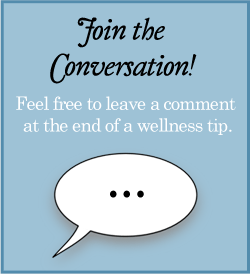 How’s Your Immune System?
How’s Your Immune System?
A healthy immune system fights off disease and colds throughout the year. However, it’s especially important during flu season, which kicks in during the fall and ends in the spring. Unlike a bad case of the sniffles or “stomach bug,” the highly contagious flu virus can lead to bronchitis and pneumonia, both of which may be life-threatening. Your immune system is the first line of defense. You can also take the offense by washing your hands and using sanitizing gel, as well as getting proper treatment if you catch the flu early.
A Hearty Immune System
Each year the World Health Organization recommends which viral strains go into your influenza vaccine. While this certainly helps ward off the flu, most shots are only effective against 10% of the circulating viruses. Your lifestyle can help fill in the gap. For example, try to avoid habits such as smoking and suntanning that suppress the immune system through the release of toxic byproducts known as free radicals. Lack of sleep also appears to increase your vulnerability by lowering the body’s T-cells that protect you from infection, while increasing inflammatory cells that depress the immune system. Chronic stress is equally deleterious, including overly strenuous exercise. In contrast, you can boost your immune system through rest, stress-reducing exercises and eating a balanced diet comprised of whole grains, lean protein, fruits, and a colorful range of vegetables that contain different micronutrients. A daily multivitamin with minerals, along with 1000 IU of vitamin D3 (extra strong and easily absorbed) may counteract the reduction in sunlight and minimize your risk of infections.
If You Get Sick
Reducing stress through meditation, therapy or yoga, getting sufficient sleep, quitting cigarettes with the help of nicotine patches or gum, and eating right can also help if you catch the flu. Drinking green or black teas and other warm fluids throughout the day minimize your discomfort from upper respiratory infections.
FYI: The difference between a common cold and the real flu usually includes a high fever, prominent headache, chills, two weeks of fatigue &/or weakness, and cough. Try to catch it early by seeing your doctor. Prescription antiviral medications can shorten the life of the flu if taken within the first 48 hours! Time-released 1000 mg. of vitamin C taken at the first sign of the flu or cold can reduce the severity and duration of symptoms as well. Stop taking this vitamin once you feel better.








